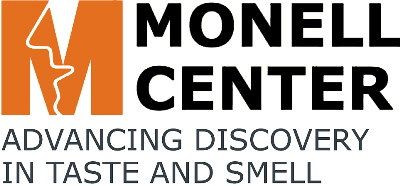Newswise — The Monell Center and the Chinese Academy of Sciences (CAS) are co-hosts of the Beijing International Meeting on Taste and Smell Research. Organized by Monell in collaboration with the CAS, the meeting will be the first international meeting on taste and smell to be held in China.
Alan Leshner, Chief Executive Officer, American Association for the Advancement of Science and Executive Publisher of Science magazine, will open the meeting with a plenary address entitled “The Globalization of Science.”
The historic meeting, to be held at the Beijing Marriott Hotel City Wall on November 15-17, represents an effort by Monell to strengthen ties between Chinese scientists and the international chemosensory research community. Monell, located in Philadelphia, Pennsylvania, is the world’s leading research institute dedicated to basic research on taste and smell.
According to Gary Beauchamp, Director and President of the Monell Center, a central goal of the meeting is to explore potential collaborations on taste and smell research that can address global concerns related to human health, disease, agriculture, and environmental protection.
Over 150 scientists from around the world will present and discuss recent advances in taste, olfaction and sensory irritation, including sessions on clinical research in the chemical senses; the molecular biology of taste and olfaction; insect chemoreception; taste, nutrition, and disease; pheromones; and neuroimaging insights into taste and smell.
The meeting will feature the latest findings on receptor, brain and behavioral mechanisms involved in taste and smell. Several sessions will highlight clinical research and the important relationship of these ancient senses to human health and disease. Other sessions will focus on pheromonal communication, including insect pheromones, a critical issue in global initiatives to reduce agricultural pests and preserve the food supply. Among the presentations:
• Impact of Taste Variation on Chronic Disease Risks, Linda M. Bartoshuk, University of Florida, USA
• Olfactory Dysfunction in Neurodegenerative Disease: Focus on Alzheimer's Disease, Claire Murphy, San Diego State University, USA
• Airborne Pollutants and their Effects on Chemosensory Function, Pamela H. Dalton, Monell Center, USA
• The Importance of Body Odors - from Neurons to Behavior and Back, Johan N Lundström, Monell Center, USA.
• Representation of Olfactory Signals in the Mammalian Olfactory Bulb, Minmin Luo, National Institute of Biological Sciences, Beijing, China
• Transgenic Studies on Human Salty Taste, Liquan Huang, Monell Center, USA
• Making Sense of the Sweet Taste Receptor, Peihua Jiang, Monell Center, USA
• The Discovery and Mechanisms of Sweet Taste Enhancers, Xiaodong Li, Senomyx, Inc., USA
• Modulation of Sweet Taste Sensitivity of Hormones and Its Roles on Regulation of Energy Homeostasis, Yuzo Ninomiya, Kyushu University, Fukuoka, Japan
• Oral Fat Exposure and Lipid Metabolism in Humans, Richard D. Mattes, Purdue University, USA
• The Flavor World of Children: From Basic Biology to Culture, Julie A. Mennella, Monell Center, USA
• Effect of Food Preference and Dietary Behavior on Overweight or Obesity in School-Aged Children and Adolescents, Yuming Chen, Sun Yat-sen University, Guangzhou, China
• Clinical Disorders of Smell and Taste: The U.S. Experience, Beverly J. Cowart, Monell Center, USA
• Advances of Olfactory Disorder Research in China, Daofeng Ni, Chinese Academy of Medical Science, Beijing, China
The Monell Chemical Senses Center is an independent nonprofit basic research institute based in Philadelphia, Pennsylvania. Monell advances scientific understanding of the mechanisms and functions of taste and smell to benefit human health and well-being. Using an interdisciplinary approach, scientists collaborate in the programmatic areas of sensation and perception; neuroscience and molecular biology; environmental and occupational health; nutrition and appetite; health and well-being; development, aging and regeneration; and chemical ecology and communication. For more information about Monell, visit www.monell.org.
